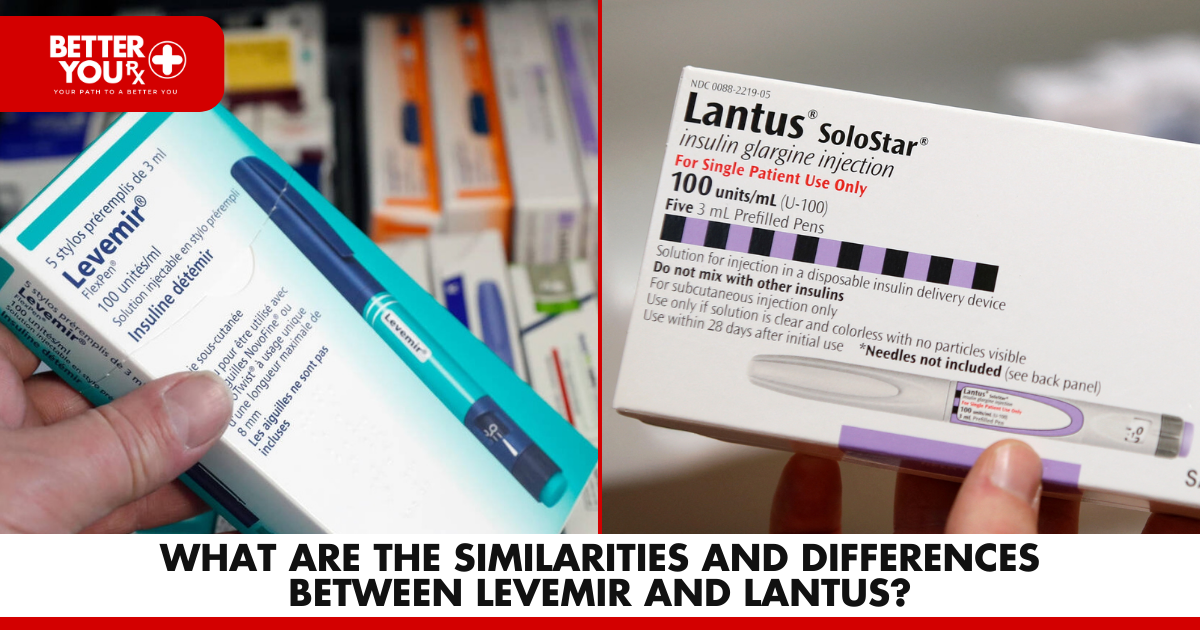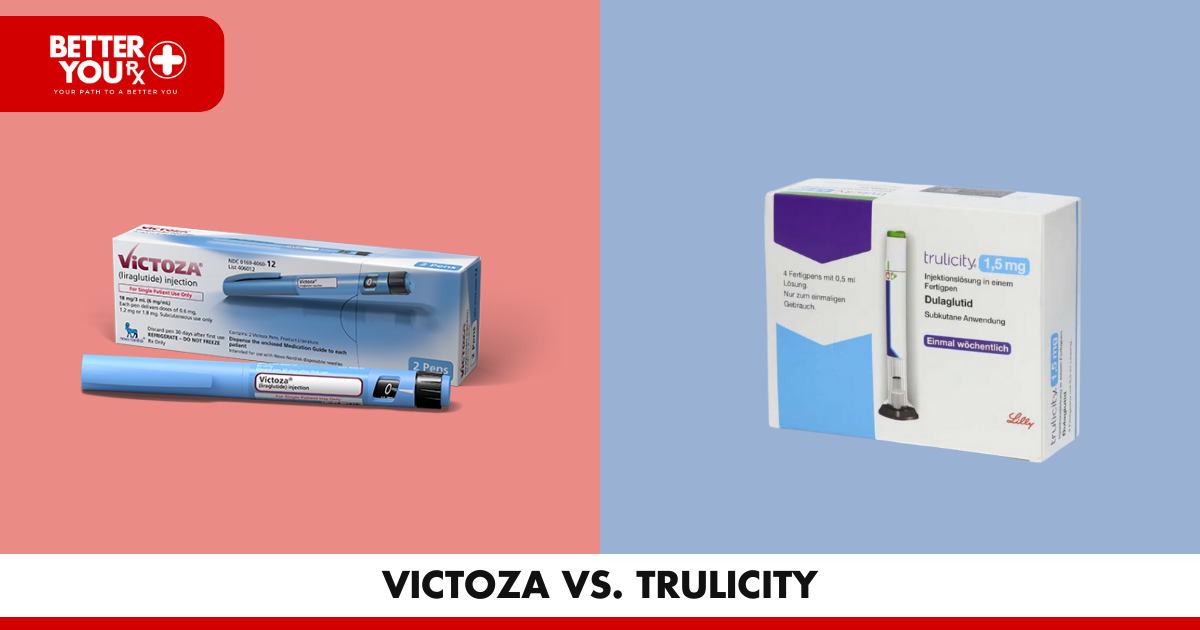How Levemir Works and What It Is
Insulin detemir, a human insulin analog with a long half-life, is sold under the trade name Levemir. Patients with type 1 or type 2 diabetes are administered it. Levemir reduces the body’s A1c levels (average blood sugar over time), which is how it works. The body can then use the sugar as energy or store it for later use by transferring it from the bloodstream into body tissues and cells in this way.
Levemir is an excellent medication for all-day blood sugar control and is often only taken once daily, though occasionally it may need to be taken twice. Using a FlexTouch Pen or syringe, it is subcutaneously injected into the upper arm, stomach, or thigh. Its dosage can be simply changed to create a regimen specifically tailored to your body’s needs.
You must routinely check your blood sugar levels while using Levemir because it may occasionally cause low blood sugar episodes.
Levemir comes as a clear, colorless solution that should not be used if it turns hazy or discolored because doing so can cause further issues.
Levemir Cost and Dosage
The amount of insulin your body produces or how effectively it can use the insulin it produces will determine how much Levemir you need to take. As a result, each person requires a different dosage, which your doctor will determine after monitoring your blood sugar levels.
One milliliter of insulin has 100 international units (IU), the unit of measurement for insulin. Levemir often comes in 10mL cartridges, disposable pens, or vials.
Levemir and quick short-acting insulin are often administered daily to type 1 diabetic patients in order to meet their daily insulin needs.
Patients with type 2 diabetes typically receive 10 units/day in the evening, however the dosage may occasionally be divided into two doses spaced 12 hours apart.
Levemir 10 mL vials typically cost $382 each, but five FlexTouch pens containing 3 mL of the drug can cost as much as $469.
Our prescription fulfillment service is where you can purchase Levemir FlexTouch Pens for $194.99.
Risks and Potential Side Effects of Taking Levemir
Levemir has a variety of side effects, much like other medicine. Some of the more typical side effects of using Levemir are given here, along with the proportion of patients that experience them.
- Infection in the upper respiratory tract (26%).
- Migraine (23%)
- Chest infection (10%)
- Flu-like signs (8%)
- Abdominal discomfort (6%)
Levemir not only exposes you to typical adverse effects but also certain severe negative effects, some of which are described here.
- Swollen joints are a result of fluid retention.
- Allergy symptoms
- Potassium deficiency symptoms
- Being unconscious
- Convulsions
Consult your doctor right away and stop taking this medicine if you encounter any of these more serious adverse effects.
Levemir and Drug Interactions Related to Disease
Levemir has been shown to interact with 376 different medications, of which 15 have major interactions, 320 have moderate interactions, and 41 have mild interactions.
Controlling your alcohol intake while taking Levemir is crucial because diabetic patients’ blood sugar levels are also impacted by alcohol usage.
Levemir may also have mild interactions with a number of medical disorders, including
- Liver and kidney disease
- Low blood sugar
- Low potassium
How Lantus Works and What It Is
Long-acting human insulin analog insulin glargine is sold under the trade name Lantus. Patients with both type 1 and type 2 diabetes are prescribed it. Lantus functions by supplanting the pancreas’ natural production of human insulin in the body. By gradually releasing insulin, this insulin gradually lowers your body’s average blood sugar level over time. It also offers reliable all-day sugar control with just one or two daily doses.
As this medication can induce low blood sugar levels, and as not taking it on a consistent schedule may even result in low blood sugar episodes, it is crucial to constantly monitor your blood sugar levels when taking it. Due to its comparable functionality to Tresiba, Lantus is occasionally compared to it.
Lantus comes as a clear, colorless solution that should not be utilized if it is hazy or discolored because doing so can cause more issues. It is injected beneath the skin and begins acting in around 90 minutes; it then remains in the body for 24 hours before needing to be given again.
While using this drug, you can put on weight. Consult your doctor so that your prescription can be customized according to your unique routine and body requirements since your dosage will need to be adjusted based on your weight and eating habits.
Lantus Cost and Dosage
The amount of insulin that your pancreas generates or how effectively your body uses the insulin that it produces determines how much Lantus to use in each individual.
One milliliter of insulin has 100 international units (IU), the unit of measurement for insulin. Lantus typically comes in prefilled Solostar pens and cartridges, 10 mL multidose vials, and other forms.
Patients with type 1 diabetes are advised to take one-third of their daily dose of insulin from Lantus and the other two-thirds from short-acting mealtime insulin. This Lantus dosage typically ranges from 0.4 to 1 unit/kg per day.
Lantus’ beginning dose for people with type 2 diabetes is 0.2 units/kg per day, up to a daily maximum of 10 units.
One 10 mL vial of Lantus costs, on average, $360, whereas five SoloStar prefilled pens of the drug with three milliliters each can cost, on average, $547.
Through our prescription fulfillment service, we sell SoloStar Pens for $179.99 and Lantus vials for $114.99.
Lantus and Drug Interactions Related to Disease
A total of 376 medications have been found to interact with lantus, with 15 of those interactions being severe, 320 being moderate, and 41 being minor.
Controlling your alcohol intake while taking Levemir is crucial because diabetic patients’ blood sugar levels are also impacted by alcohol usage.
Levemir may also have mild interactions with a number of medical problems, including:
- liver/renal disease
- Low blood sugar
- Low potassium
Differences between Lantus and Levemir
Long-acting insulins like Levemir and Lantus are used to treat and manage diabetes. Although these medications are fairly similar, they do differ in a few ways.
Depending on your dosage, Levemir can be taken once or twice a day; Lantus, on the other hand, is often only taken once daily. Levemir takes about 6 to 8 hours to reach its peak blood concentration, after which it can maintain levels close to that peak for up to 24 hours, as opposed to Lantus, which has no peak concentration but is instead absorbed more gradually and consistently to maintain a constant concentration for up to 24 hours.
The age requirement for Levemir is two years or older, but the age requirement for Lantus is six years or older.
Which Is Better Between Levemir and Lantus?
When it comes to controlling blood glucose levels in persons with diabetes, both Levemir and Lantus are equally effective.
Levemir may occasionally need to be taken twice daily in order to provide some patients with the same blood sugar management as Lantus, but there is no evidence to suggest that one of these medications is superior to the other.
Although very similar, the drugs are not interchangeable. You should never switch from one medication to the other on your own, as it can lead to complications. It is necessary to consult your healthcare professional to see if the medication you are taking has interactions with other drugs that may have been prescribed to you and to find out whether Levemir or Lantus works best for you.
These medications are not interchangeable despite being quite similar. It is never a good idea to switch medications on your own because it can cause issues. To find out whether Levemir or Lantus will work best for you and to find out whether the medication you are taking interacts with any other medications you may have been prescribed, it is important to speak with a healthcare expert.
Experience optimal diabetes management with Lantus – available at Better You Rx pharmacy. Our commitment to your well-being is evident in every aspect of our service. With competitive pricing and a focus on personalized care, we provide you with access to Lantus at an affordable rate, helping you take control of your diabetes.
Choose Better You Rx for your prescription needs and experience the difference. Our knowledgeable team is here to guide you through the process, ensuring you have the right medication and support tailored to your unique requirements. Don’t compromise on your health – make the choice that prioritizes your well-being. At Better You Rx, we’re dedicated to providing you with the best in diabetes care.










